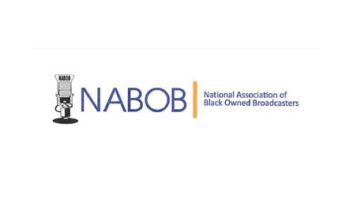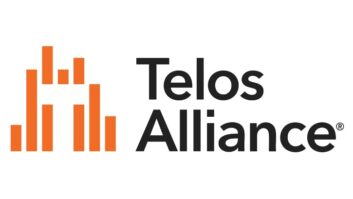A reader who owns several stations in the mid-south and whose renewal is due within a year wrote to me with the following thoughts. I share it because the topic of discrimination in radio sales agreements is much on the minds of station licensees right now. While I don’t agree with all of his characterizations, the writer, who asked not to be identified, raises important points about how this issue is playing out in the radio management trenches.
To: Paul McLane, Editor, Radio World
Renewal season begins soon for radio stations, the first applications due by June for stations in D.C., Maryland, Virginia and West Virginia. There’s a new form out, too, Form 303-S.
Wait, what’s this at Question 7? “Commercial licensee certifies that its advertising sales agreements do not discriminate on the basis of race or ethnicity and that all such agreements held by the licensee contain nondiscrimination clauses.”
Turns out, this is all Bush’s fault. Back in 2007, the commission started a “diversity” proceeding. One of the issues taken up was a complaint by minority broadcasters that they were not getting their “fair share” of advertising buys. As evidence, they claimed certain ad agency “contracts” contained clauses specifying their flights not run on urban or Spanish stations.
My guess is no such apocryphal contracts existed. Instead, what the paid lobbyists were referring to was language in general requests for “rate and avails” that the agencies e-mailed to every station in large markets. Advertising agencies discriminate? Do bears pitch toilet paper on TV?
So what did the commission do in 2008? They blamed the stations for any discrimination. They prohibited stations from entering into “No Urban, no Spanish” ad contracts. Then they went a step further, requiring ALL contracts contain a statement that the station does not discriminate in the sale of advertising.
Wait! You mean I have to search through all our paperwork since 2008? Well, no, sometimes even the commission concedes to reality. On March 11, they issued a further order putting off the effective date of this rule to March 14, 2011. Our state broadcasting association dutifully sent out a memo from their captive communications counsel. He provided us with nice flowery language to stick in our advertising contracts. Problem solved, everyone move on, nothing to see here.
Well, no. As usual, neither the political hacks on the commission nor the FCC bar seem to have a clue. Of course, as anyone in small markets realizes, this rule has nothing to do with the realities of our business.
Problem No. 1: What written contracts?
Most of our business is local direct. Our sales people dealing directly with local merchants. The AE (account executive) visits the local jeweler. A long-time client, the jeweler has a trunk show coming up and wants to run a schedule on the station at the end of next week. AE gets copy points, writes out the schedule for traffic (or types it into the billing system) and tells production what he needs in the spot. Flight runs, show is a success, jeweler billed the first of month, his check comes in, everyone is happy.
Is there a contract here? Sure — a valid oral contract exists. First-year contract law. We have offer and acceptance, consideration, performance. Where do you put this “anti-discrimination” language in an oral contract?
Problem No. 2: It’s written, but not a formal document.
Ad agency e-mails for “rate and avails,” station replies. E-mails exchanged over rate. Eventually agency sends back a schedule by e-mail, with instructions on where to download the spot. Flight runs. Some 120 days later, after the traffic gal grinds our five affidavits and starts sticking pins in a voodoo doll, a check arrives. Obviously a contract can be found in the e-mail exchange, but again, where do you put this boilerplate anti-discrimination language?
Problem No. 3: It’s written, it’s a formal document, but the station didn’t write it.
Syndication agreements, barter agreements, network agreements: They send them to us, we sign them and send back. We get the right to carry their programming (or get the jingles cut for free) and all we have to do is carry their spots. Oh, wait, that’s an “advertising sale agreement.” Oh boy, so now we have to argue with Premiere and TM about changing their standard contracts?
Problem No. 4: Political contracts.
It’s written, it may be one document and it’s in our public files. These are called “political contracts.” Well, I suppose for the local candidates we can put together our own agreement (with the required language). Just did one for the upcoming primary. But suppose Candidate 1 signs our agreement and runs spots on our station. A week before the election, his opponent calls us and demands time. He sends us his copy, a schedule and check by FedEx. I kind of think we have to run his spots.
Went back through our political file. Back in 2008, presidential primary — here’s this “2004 NAB Political Agreement” all filled out, copy of a check, and a cover letter telling us to sign and fax back the agreement. Of course, no “anti-discriminatory language” — 2004 form, after all. Ran those spots, of course. Had to, federal candidate, some fellow with a funny name, Obama. I wonder what happened to him?
As you can see, our sales people create binding contracts every day. Some are oral, some are written. Obviously we cannot honestly certify that all these agreements contain anti-discrimination clauses.
We’ve taken some steps — rewritten political agreement, added the non-discrimination clause to the “signature line” on e-mails from the sales folks. But between network agreements and candidate communications, it would be easy to find an “advertising sale agreement” lacking the required anti-discrimination language.
A time bomb ticking away in our files.
This is a very dangerous regulation, a plaything for the professional agitators and the commission’s enforcement bureau. Obviously it has no effect on the advertising agencies. They buy who they want, when they want. Even if the commission could control broadcast ad placement by the agencies, the agencies would just abandon the medium for the Internet and direct mail. It does nothing for “diversity,” either. Most markets have too many stations. Our traffic tanked 20% in 2009, and really hasn’t recovered to what it was five years ago.
So we are going to refuse buys because the advertiser is “Black” or “Polish”? The NAB and the big groups (who can afford the legal bills) need to step up and get this “gotcha” removed before we get much further into the renewal cycle.
Post your comments below or write to [email protected].












